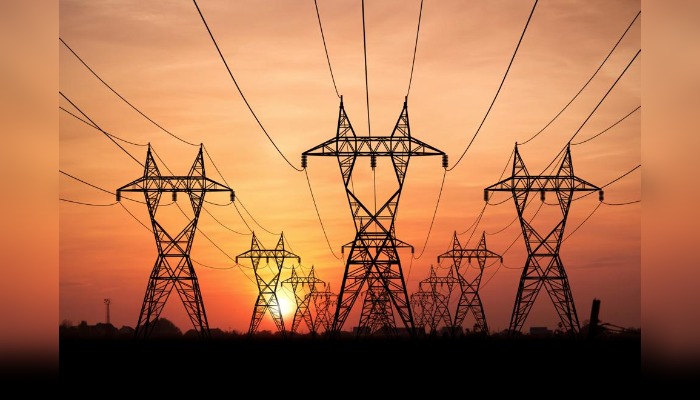Essay by Eric Worrall
“… participants angry about other people’s inaction and apathy had more symptoms of depression and anxiety. …”
Climate anger can lead to action—or curdle into despair: Researchers find out why
by Samantha Stanley, Iain Walker, Teaghan Hogg and Zoe Leviston, The Conversation
…
Our new research surveyed 5,000 Australians and found almost half (49%) are angry about our warming world. So what do people do with their climate anger?
…
13 kinds of climate anger
Far and away, the most common type of anger was directed at the inaction and apathy of other people. About 60% of our angry participants were angry at what they saw as a lack of action and concern.
Who was this directed at? Sometimes, it was aimed at leaders: “a lack of action by government.” Or it was directed at regular people who “don’t care and aren’t willing to help change it.” Businesses or entire nations were also targets.
The next most common grievance (about 13%) was at those who deny climate change. For instance, “There are a lot of people who still think that climate change is not happening.”
…
Which types of anger lead to action?
…Interestingly, participants angry about other people’s inaction and apathy had more symptoms of depression and anxiety. But participants angry about government inaction and apathy had fewer of these symptoms.
…
Read more: https://phys.org/news/2024-12-climate-anger-action-curdle-despair.html
The quoted study;
The various forms of anger about climate change in Australia and their relations with self-reported actions, intentions, and distress
Author links open overlay panel
Samantha K. Stanley ab, Zoe Leviston cd, Teaghan L. Hogg e, Iain Walker fca
a UNSW Institute for Climate Risk & Response, University of New South Wales, Australia
b School of Psychology, University of New South Wales, Australia
c School of Medicine and Psychology, Australian National University, Australia
d School of Arts and Humanities, Edith Cowan University, Australia
e Discipline of Psychology, University of Canberra, AustraliafMelbourne Centre for Behaviour Change, University of Melbourne, Australia
f Melbourne Centre for Behaviour Change, University of Melbourne, AustraliaReceived 23 July 2023, Revised 16 September 2024, Accepted 20 November 2024, Available online 22 November 2024, Version of Record 19 December 2024.
Handling editor: Wokje Abrahamse
Highlights
- •We investigated what makes Australians angry about climate change.
- •The most prevalent cause of anger was perceived inaction and apathy.
- •Anger categories differently related to behaviour, intentions, distress.
- •Anger about government inaction predicts greater action, lower distress.
Abstract
Action on societal issues is often precipitated by feelings of anger. This has been demonstrated reliably for responses to social inequality, but less for other issues. We build on nascent research documenting the links between climate anger, pro-environmental action, and psychological distress, by focusing on the contents of eco-anger. Using a sample of 5244 Australians, we found that 48.6% reported being at least ‘somewhat’ angry about climate change. Content analyses of the focus of this anger revealed diverse reasons for people’s anger. The most common focus was others’ inaction and apathy on climate change, followed by anger directed at deniers, and at big polluters. Altogether, we identified 13 major categories of anger in our corpus of data. In further exploratory analyses, we examined the correlations between anger forms, self-reported pro-environmental behaviour, collective action intentions, and distress. Our findings suggest that behavioural engagement with climate change could depend, in part, on whypeople are angry.
Read more: https://www.sciencedirect.com/science/article/pii/S0272494424002639?via%3Dihub
Assuming the 49% figure is correct, 49% of people angry about climate inaction is an awful lot of anger, and not a lot of action.
There is precious little indication those angry people are personally trying to lead low carbon lifestyles. For example, the percentage of EVs on Aussie roads is nowhere near 49%.
The Green Party vote in Australia in the most recent election was only 12.2%. Australia has compulsory voting, you get fined if you don’t vote and can’t provide a good reason. Only a quarter of those angry people voted for the one party which is utterly committed to climate action at any cost.
Clearly the majority of those angry people have other priorities, whatever anger they feel about climate inaction is less important to them than those other priorities, like hanging on to the gas guzzler, or voting for political parties other than the Green Party, parties which best represent their interests.
It seems odd to me that all this alleged climate anger appears to lead to so little tangible action. Let us hope those angry people have their lives brightened by the company of loved ones on Christmas Day.
Related
Discover more from Watts Up With That?
Subscribe to get the latest posts sent to your email.









Leave a Comment